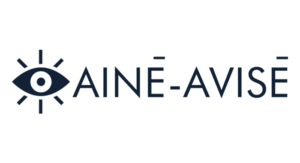Did you know ?
How to regain control over your finances
As we are learning to cope with the ever-changing “normal” imposed by the coronavirus, the personal finances of millions of people are in tatters. Taking back control may mean making difficult choices.
 In the last few months, many people have simply put off dealing with their problems as financial institutions and governments have stepped in to provide relief. Now they have to pull the plug on their financial life support.
In the last few months, many people have simply put off dealing with their problems as financial institutions and governments have stepped in to provide relief. Now they have to pull the plug on their financial life support.
Changing course
Of course, every situation is different. Someone with 8 or 10 years to go before retirement, whose employer has disappeared, may have an opportunity to reinvent themselves in another field.
But if this is not the case, is it possible to go on as before? Not for most people whose income has been affected by the health emergency. “Everyone should review their personal finances. Especially if their debts have increased,” says Martine Marleau, budget counsellor with the Association coopérative d’économie familiale (ACEF) de l’Est de Montréal.
“A lot of people had a repayment plan, savings goals, and a retirement date,” she continues. “Now, none of those things makes sense.”
Many people have seen the value of their investments plummet.
“Some will have to put off retirement for one or two years or work part time after retirement.”
To regain control, you need an accurate picture of your financial situation.
“The best way is the tried and true method of drawing up a budget,” says Sonia St-Pierre, spokeswoman for ACEF du Grand- Portage. “You will then know the state of your assets and debts, be able to accurately measure your room to manoeuvre and, most importantly, make a projection of your income and expenses for the next year and your future needs.”
No debts?
It used to be said that you should be debt-free when you retire. This is becoming less and less true.
“The key is that income from employment or pensions should exceed the cost of debt and regular expenses,” says Martine Marleau.
Some use their home equity line of credit to consolidate their debts because they want to remain homeowners. Sometimes it’s actually cheaper to reimburse the line of credit than it is to pay rent! But you must be disciplined.
According to Sonia St-Pierre, even if your assets’ value exceeds the value of your debts at retirement, your income must still cover all your needs. Retirement plans therefore need to be re-examined to ensure that they are affordable.
For her part, Martine Marleau does not entirely agree with the principle that a retiree must receive 70% of their employment income to make ends meet in retirement.
“Some people are perfectly happy with their community garden and bike trips,” she says. “But most retirement projects are costly. If it were me, I’d tighten my belt and pay off my debts quickly before leaving the job market.”





